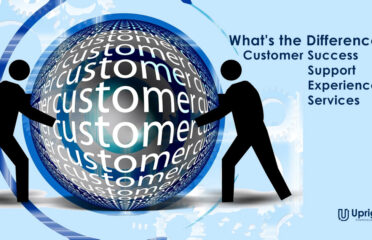What is E-Commerce?
E-commerce is the activity of electronically buying or selling of products on online services or over the Internet.
Using e-commerce software, businesses have developed the ways they function and carry out operations with rapidly advancing technology. People have begun to look at businesses and commerce differently with the advancement of technology. As the online space grows, the user and business owners’ mindset change. Merging technology into the business has helped both the customers as well as the businesses themselves.
E-commerce is the process of buying and selling goods online along with enabling the transaction of funds digitally. This has made the process easy, effective and efficient for companies and consumers.
E-commerce has brought a huge change in the way customers view shopping today. Being able to order everything online, getting it delivered hassle-free, and paying for it online — has made lives extremely easy for all.
Let’s take a look at what e-commerce platforms are and what all do they entail.
What is e-commerce software?
E-commerce software entails buying and selling products or services of all kinds online. There are multiple types of e-commerce including business to business selling, business to consumer selling, consumer to business selling and consumer to business selling.
Businesses usually use software to carry out business activities. E-commerce software is accessible to customers as well as businesses. Through these platforms, clients go through a range of products that businesses have to offer, choose what they want, add it to the cart and place an order.
Amidst the Covid-19 pandemic, many businesses resorted to selling their products online and succeeded in creating an e-commerce space for their businesses because of the efficient process.
Other than helping companies in selling their products online, e-commerce software digitalizes all the operations of an offline store. Ranging from handling inventory, adding or removing goods for sale, processing payments, and managing taxes to completing the orders, e-commerce software is a tool that efficiently accomplishes all these processes.
One of the major things that e-commerce software has done is that they have given small businesses with limited inventory a platform to sell their products.
Through e-commerce platforms, businesses have been able to effortlessly run the operations they had to worry about in offline retail stores.
E-commerce platforms work toward providing a space for online businesses to carry out their business activities. It has helped many companies set up a digital space for their businesses and effectively run them.
Things to keep in mind during e-commerce software development
Today, there are around 24 million e-commerce websites worldwide and as per Statista, there were about 2.14 billion people around the world who bought products online in 2021.
Thus, it is important to note that e-commerce software development has helped many businesses and consumers across the globe.
Although, for e-commerce software to work for a specific business, it is important to take into account the cost. While the cost of an e-commerce platform varies, businesses should focus on spending only where essential and making the most out of the software.
For an e-commerce software to grow a business, other important things to keep in mind are whether the software is easy to install and use. It is important for a small business to know if the platform would benefit the company.
The e-commerce platform should be customizable so that it can be personalized to fit a particular business perfectly.
An E-commerce solution is designed to make the functioning of a business easier, hence businesses should take that into account along with ensuring that the software is delivering an enhanced consumer experience.
It is also important to understand how much time will need to be devoted to e-commerce software. Can it be left to operate on its own or does the business need to put in extra time and effort to run the online business?
E-commerce software development should be such that all the data, operational details and resources of retail or offline stores can be integrated into it for the efficient functioning of the business.
Online businesses strive for customer satisfaction and a part of delivering this satisfaction is to ensure that the data of the customers is well-protected and the e-commerce platforms should be built around the same idea.
Another important thing to consider is how the e-commerce platform will help a business earn more profits and what digital marketing tools and social media platforms can be used to maximise profits through an e-commerce software solution.
While setting up an e-commerce software, many businesses have most of a few of these concerns. It is important to get answers to all of these questions or issues. By addressing them, companies will feel more comfortable expanding online and will be able to earn maximum profits through selling via the internet.
Types of e-commerce software?
There are two types of e-commerce software platforms: Software-as-a-Service (SaaS) platforms and on-premises platforms.
Software-as-a-Service (SaaS) platforms
Software-as-a-Service (SaaS) platforms deliver e-commerce software solutions through the internet. These types of software are located on the internet or on the cloud and not on a specific system or location.
- SaaS platforms help businesses in professionally set up and support their e-commerce software.
- Best suited for small businesses because updates and new features can be easily integrated through the internet into the software.
- Updates are automatically done on SaaS platforms and set in cloud places like Shopify.
With the advancement of technology, SaaS platforms have become extremely easy to customize and flexible to make any changes that might be required.
Although they require a minimum fee to be paid on a monthly or annual basis, SaaS platforms are more affordable than other e-commerce software solutions and are easier to develop, launch and maintain.
2. On-premises platforms
On-premises platforms are installed in specific systems or servers and are supposed to be managed from the site. Businesses usually buy a license for the e-commerce software and have to pay an annual fee for updates.
Additional updates or maintenance charges are usually available for an extra fee. On-premises platforms are handled by a team of developers who manage updates and troubleshoot any issues that come up.
Earlier, the management system of on-premises platforms was better than SaaS platforms and that is why businesses began choosing this type of e-commerce software development. Although, a major advantage of on-premise platforms is that they let businesses have more control over their e-commerce software.
What are the features of e-commerce software?
E-commerce software development offers a variety of features that help businesses digitally sell their products and manage their online stores.
- E-Commerce software automates the complete process of a retail store. Pricing, taxes, shipping, purchase, delivery, client information and all of the other operational elements get automated.
- Setting up an online store is much easier and a lot less expensive than setting up a retail store. With an online store, businesses can showcase the products — even though they do not have them in inventory — and take orders, and then deliver on an agreed date.
- Processing payment has become much easier with online businesses. Many platforms have their own payment processing windows and this has reduced the reliability of businesses on payment getaways.
- It is extremely essential to market the e-commerce platform and products properly. E-Commerce software today, use multiple marketing tools to further their business and earn more profits.
- E-commerce platforms can be developed with a central database that would hold client information, product listings, customer data, prior sales, product information, shipping and payment status of orders, accounting data, and much more.
- Creating an online store gives businesses the flexibility of integrating various platforms together. Hence businesses can easily integrate applications of digital platforms that they are already using with their e-commerce platform.
What advantages of e-commerce software?
E-commerce is a growing space and with thousands of businesses starting an online business, it is important to know the advantages of e-commerce software development.
The major advantages of an e-commerce solution are:
- The development of e-commerce software ensures the availability of a business to the customer at all times. Online businesses can be open 24*7 and hence can sell more products than offline stores.
- Through an online storefront, a business can reach clients throughout the world at all times. This increases the reach of the business and helps a company in creating a brand image worldwide. If a company uses an e-commerce software, time or geography does not stop them from selling their products.
- E-commerce software development helps businesses in saving a huge amount of time, money and resources. With no regular inventory or store to maintain, businesses can cut down on multiple costs and make more profits. A lot of time is also saved because the customers see and choose the products themselves without the need of a manager. Along with this, businesses can put human, economical and other resources to better use.
- With e-commerce software, businesses can easily give every client the required attention because most of the process is automated. Hence, consumer satisfaction is more than that in a retail store.
- Marketing products digitally or through social media platforms also becomes more convenient because most e-commerce platforms have built-in marketing tools. This helps businesses in reaching the right clients at a faster pace.
Top 15 Best E-Commerce Platform Software Trending 2023!
 Best practices
Best practices
Customer success is a different segment other than marketing, sales, and promotions. Hence, companies should bring a new team that handles only customer success. This will make the concentration of the company in that area better way. Companies should pay attention to the importance of Customer success in the current business scenario.
Insights
Check out our latest market research insights and industry trending updates captured in our blogs.
Subscribe To Our Newsletter
Join Uprighte subscribers list to get the latest news, updates and industry research reports delivered directly in your inbox.
Your email is safe with us, we don’t spam



